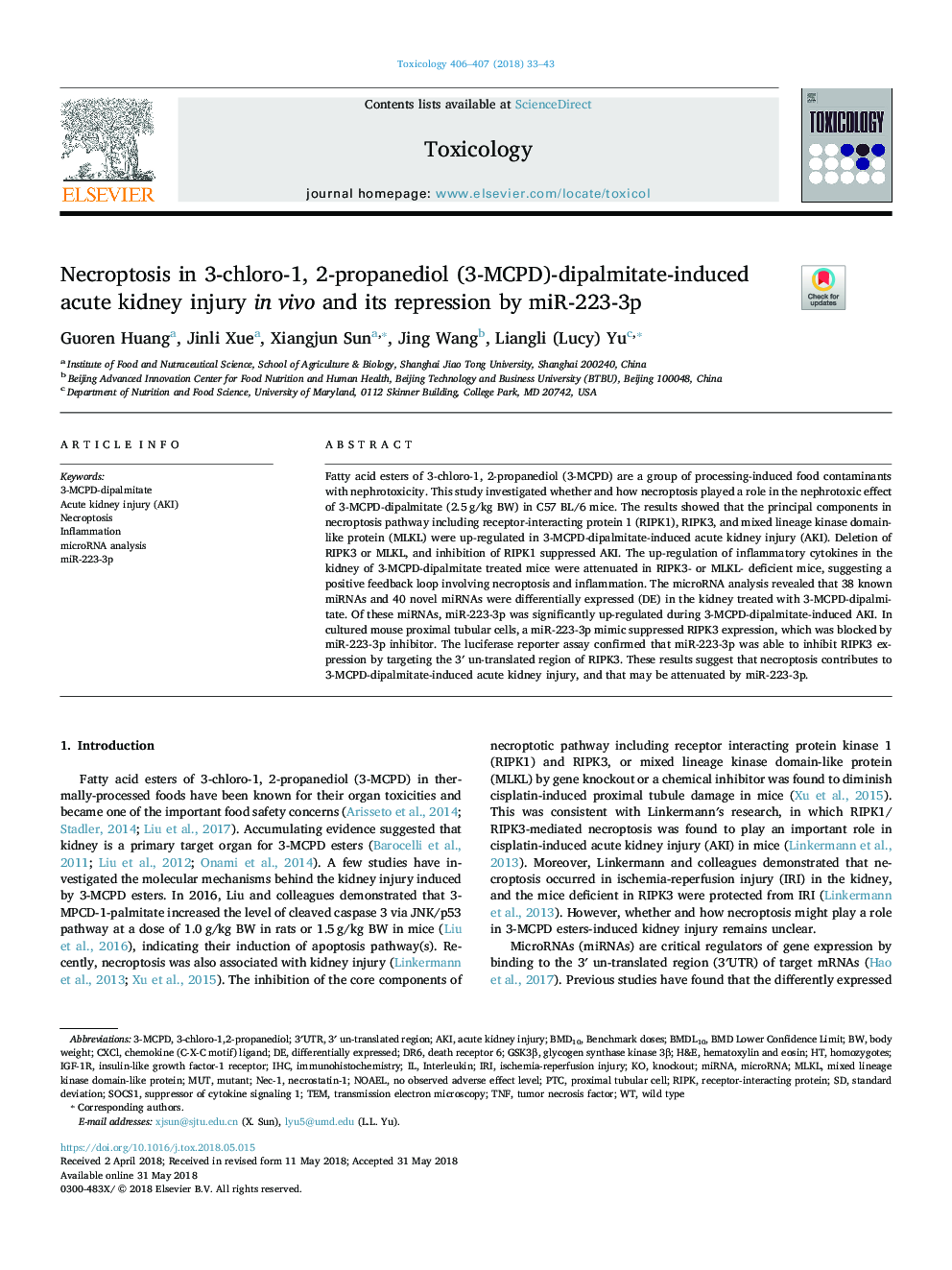| Article ID | Journal | Published Year | Pages | File Type |
|---|---|---|---|---|
| 8552726 | Toxicology | 2018 | 11 Pages |
Abstract
Fatty acid esters of 3-chloro-1, 2-propanediol (3-MCPD) are a group of processing-induced food contaminants with nephrotoxicity. This study investigated whether and how necroptosis played a role in the nephrotoxic effect of 3-MCPD-dipalmitate (2.5â¯g/kg BW) in C57 BL/6 mice. The results showed that the principal components in necroptosis pathway including receptor-interacting protein 1 (RIPK1), RIPK3, and mixed lineage kinase domain-like protein (MLKL) were up-regulated in 3-MCPD-dipalmitate-induced acute kidney injury (AKI). Deletion of RIPK3 or MLKL, and inhibition of RIPK1 suppressed AKI. The up-regulation of inflammatory cytokines in the kidney of 3-MCPD-dipalmitate treated mice were attenuated in RIPK3- or MLKL- deficient mice, suggesting a positive feedback loop involving necroptosis and inflammation. The microRNA analysis revealed that 38 known miRNAs and 40 novel miRNAs were differentially expressed (DE) in the kidney treated with 3-MCPD-dipalmitate. Of these miRNAs, miR-223-3p was significantly up-regulated during 3-MCPD-dipalmitate-induced AKI. In cultured mouse proximal tubular cells, a miR-223-3p mimic suppressed RIPK3 expression, which was blocked by miR-223-3p inhibitor. The luciferase reporter assay confirmed that miR-223-3p was able to inhibit RIPK3 expression by targeting the 3â² un-translated region of RIPK3. These results suggest that necroptosis contributes to 3-MCPD-dipalmitate-induced acute kidney injury, and that may be attenuated by miR-223-3p.
Keywords
AKIPTCMUTGSK3βIGF-1RSOCS1CXCLNOAELDR6death receptor 6BMDL10necrostatin-13-MCPDMLKLTNFmiR-223-3p3′UTR3-Chloro-1,2-propanediolH&EIRINec-1Ischemia-reperfusion injuryacute kidney injuryacute kidney injury (AKI)inflammationstandard deviationImmunohistochemistryIHCTeminterleukinMutantRIPKsuppressor of cytokine signaling 1proximal tubular celltumor necrosis factorchemokine (C-X-C motif) ligand Differentially expressedMicroRNAMiRNATransmission electron microscopyNecroptosisknockoutwild typeHematoxylin and EosinNo observed adverse effect levelbody weightmixed lineage kinase domain-like proteinReceptor-interacting proteinGlycogen synthase kinase 3βInsulin-like growth factor-1 receptor
Related Topics
Life Sciences
Environmental Science
Health, Toxicology and Mutagenesis
Authors
Guoren Huang, Jinli Xue, Xiangjun Sun, Jing Wang, Liangli (Lucy) Yu,
